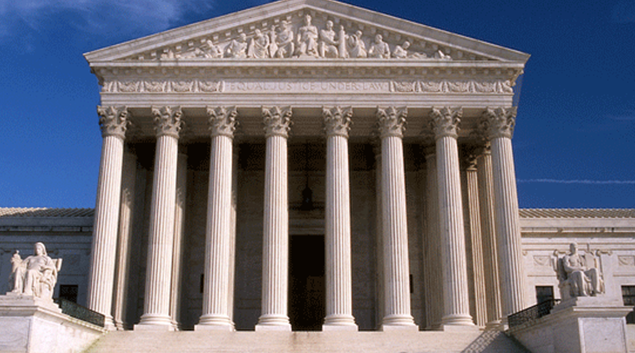
The Supreme Court will once again decide the fate of the Affordable Care Act, but it’s unlikely that will happen before the 2020 presidential election this November.
The court on Monday said it would consider an appeal by 20 Democratic states that are defending the ACA from a lawsuit brought by Republican states. The GOP-led states claim that without the individual mandate the entire law has no constitutional validity, an argument upheld by a district court in Texas.
On appeal, the Fifth Circuit Court kicked the case back to the lower court.
The Democratic states had asked the high court for an accelerated decision, but the Justices declined. The Supreme Court is expected to hear the case in its next term, which runs from this October to June 2021, but a decision is unlikely until next year.
WHY THIS MATTERS
Insurer organizations pointed to the current uncertainty with the ACA that they hope will be stabilized in the high court’s decision.
Matt Eyles, president and CEO of America’s Health Insurance Plans said, “We applaud the Supreme Court’s decision to grant certiorari (review) in TX v US, which will remove the continued legal uncertainty that undermines the stability of coverage for nearly 300 million Americans. We are confident that the Supreme Court will agree that the district court’s original decision to invalidate the entire ACA was misguided and wrong, and that zeroing out the mandate was never intended to wreak havoc across the entire American healthcare system.”
The Association for Community-Affiliated Plans CEO Margaret A. Murray said, “After watching this case ricochet between District Court and the Court of Appeals, we’re glad that the buck stops at the Supreme Court. This lawsuit has cast a pall of uncertainty over the future of the individual insurance market.”
THE LARGER TREND
The Supreme Court has twice previously upheld the ACA.
In December, the Fifth Circuit Court of Appeals agreed with a district court in Texas that the mandate for individuals to buy insurance was unconstitutional. But the appeals court sent Texas v. United States back to the lower court to decide whether the rest of the law was moot without the mandate.
The Trump Administration and Republicans have tried unsuccessfully to get rid of the law, while saying they want to continue to protect consumers who have preexisting conditions, one of the mandates of the ACA.
The Supreme Court’s decision will also affect whether Medicaid expansion remains in place.
ON THE RECORD
Ways and Means Committee Chairman Richard E. Neal said, “If the Supreme Court rules against the Affordable Care Act, tens of millions of people will lose their health insurance and patients will be unable to access the critical treatments and medicines they need. In short, there will be widespread uncertainty, and Republicans have no alternative plan to prevent chaos.”
Twitter: @SusanJMorse
Email the writer: susan.morse@himssmedia.com
